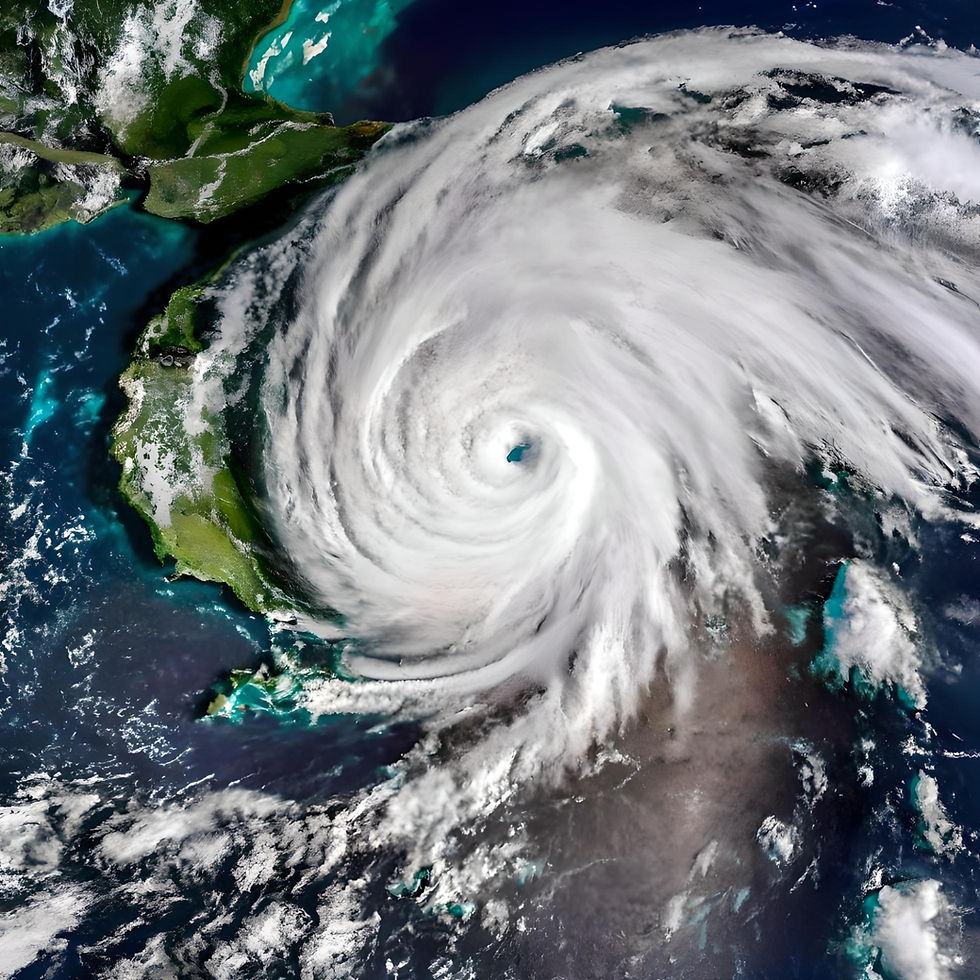INDIA’S URGENT CLIMATE CALL AT COP30
- Harini Mani Youth 4 COP Participant
- Nov 19, 2025
- 3 min read
When I think about climate change, it’s no longer a distant scientific discussion. With rising temperatures, increasingly unpredictable rains, and more frequent droughts and floods, climate change is already reshaping life across India, putting both urban and rural communities at risk. As the world gathers in Belém, Brazil, the conference marks a decade since the Paris Agreement and a crucial shift from pledges to real-world implementation of climate solutions. For someone like me, who works at the nexus of agricultural innovation and climate education, it is a critical element that can shape the voices from the Global South, frame the global climate policy for mobilizing communities for ambitious climate action.
Climate action-The need of the hour
The summit’s focus on implementation, climate finance, and a just transition resonates with my work in sustainable agricultural development and climate communication. The Amazon region, where COP30 is hosted, is a vital carbon sink and a frontline in the fight against deforestation and climate change. India’s updated NDCs emphasize solar efficiency, clean energy expansion, and carbon market mechanisms that reflect the urgency to act soon. India’s focus on National Adaptation Plans (NAPs), which prioritize ecosystem conservation, water management, and community resilience and exemplifies the kind of localized adaptation critical for vulnerable populations. For me, COP30 is also a reminder that climate action is not just about policy—it’s about people. I strongly believe that when people collectively work for change, miracles happen.

What We Want on the Agenda
India has set out Nationally Determined Contributions (NDCs) under the Paris Agreement, to reduce GDP's emission intensity by 45% by 2030 compared to 2005 levels, achieving 50% of its electricity capacity from non-fossil sources before the deadline, and improving carbon sinks through forestry projects. India has the chance to support equity-driven global climate finance, expand adaptation plans, and restate its climate commitments at COP30.
A key component of climate governance must be the meaningful engagement of women, youth, Indigenous Peoples, and marginalized groups. A full fossil fuel phase-out and science-based national action plans, to genuinely keep the 1.5°C target alive helps in promoting green initiatives. True intergenerational equity means giving young people real platforms and decision-making roles and not just as token inclusion. Climate finance should be accessible, transparent, and accountable to those most affected, while technology transfer to developing nations must be strengthened through collaborative mechanisms.
Because, let’s face it: climate impacts hits the Global South first and the hardest, where our communities bear the brunt of environmental degradation, displacement, and economic instability and which is precisely why COP30 must urgently prioritize our needs, ensure equity in action and finance, and uphold justice as the foundation for a global community well-being.
Strengthening the youth participation
The Global Youth Statement by YOUNGO calls for climate finance that is transparent, grant-based, and accessible, especially to grassroots, Indigenous, and marginalized communities.

It also urges clear differentiation between funds for adaptation, mitigation, and loss and damage, ensuring timely support for those already facing climate impacts.
At COP30, youth must be recognized not just as advocates, but as partners in implementation. Climate education should empower action, promoting climate literacy, creative leadership, and valuing Indigenous and local knowledge. Negotiations must also protect environmental and human rights defenders while advancing inclusive, gender-responsive climate policies. We call for transparent, grant-based climate finance that reaches those who need it most, from grassroots innovators to Indigenous communities. We propose stronger investment in climate education that encourages action and empowers young leaders to shape policy, not merely just study it.
COP30 marks a turning point in climate action as a reminder that the time for implementation is now. For me, it serves as a source of inspiration and a means of establishing connections with people who have a similar outlook on a sustainable future. Binding legal frameworks acknowledging state and corporate responsibilities are necessary for truly equitable climate action. These frameworks should include reparations for impacted communities, environmental defender protections, and pathways for climate litigation. Climate action is everyone’s responsibility, and conferences like COP30 show that collective effort can drive real change.

As a reminder that the time for implementation is now, COP30 represents a turning moment in climate action. For me, it's a way to network with people who share my vision for a sustainable future. For climate action to be truly equitable, binding legal frameworks that recognize corporate and state obligations are required. Reparations for affected communities, safeguards for environmental defenders, and opportunities for climate litigation should all be part of these frameworks. Climate change demands that we hold polluters accountable and make sure they pay for the damage caused. Implementing solutions at scale requires global cooperation from the rich and poor nations, governments and communities. The future depends on what we do now, together.
Resources:










Comments